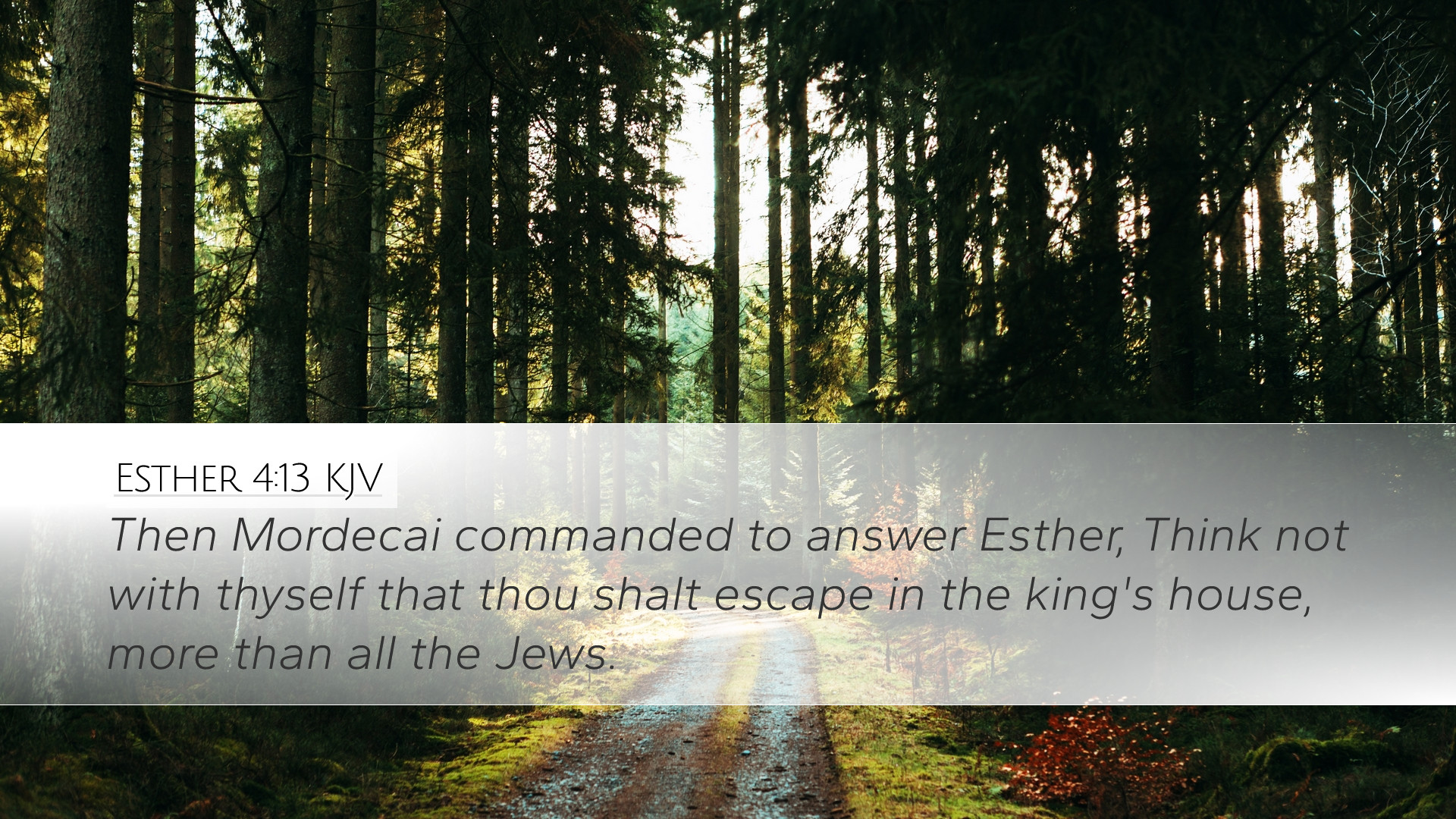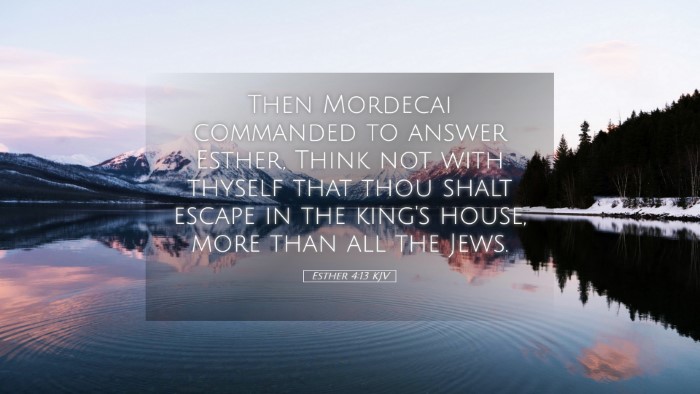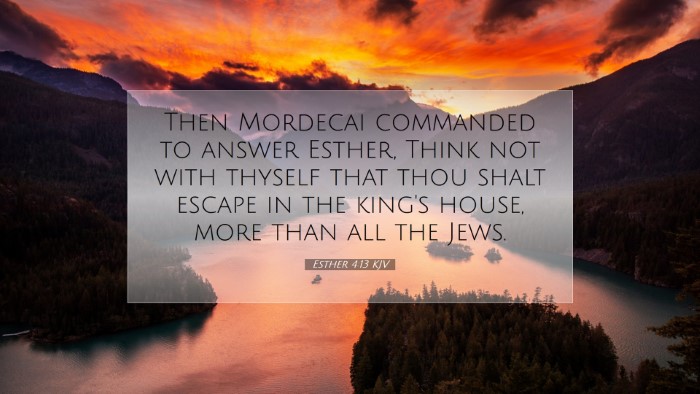Old Testament
Genesis Exodus Leviticus Numbers Deuteronomy Joshua Judges Ruth 1 Samuel 2 Samuel 1 Kings 2 Kings 1 Chronicles 2 Chronicles Ezra Nehemiah Esther Job Psalms Proverbs Ecclesiastes Song of Solomon Isaiah Jeremiah Lamentations Ezekiel Daniel Hosea Joel Amos Obadiah Jonah Micah Nahum Habakkuk Zephaniah Haggai Zechariah MalachiEsther 4:13
Esther 4:13 KJV
Then Mordecai commanded to answer Esther, Think not with thyself that thou shalt escape in the king's house, more than all the Jews.
Esther 4:13 Bible Commentary
Bible Commentary on Esther 4:13
Esther 4:13 states, "Then Mordecai commanded to answer Esther, Think not with thyself that thou shalt escape in the king’s house, more than all the Jews."
This verse constitutes a pivotal moment in the Book of Esther, as it highlights the critical choice facing Esther regarding her identity and role in the unfolding events concerning the Jewish people. The implications of Mordecai's message are profound, urging a consideration of divine providence and individual responsibility in the face of collective tragedy.
Insights from Public Domain Commentaries
Mordecai's Urgency
As noted in Matthew Henry's Commentary, Mordecai's urgent communication with Esther reflects his awareness of the dire circumstances facing their people. He implores her not to assume that her position in the palace guarantees her safety. This appeal signifies a deeper theological truth: that privilege does not exempt one from communal suffering.
Henry emphasizes the idea that Esther's identity as a Jew cannot be obscured by her royal status. The gravity of Mordecai’s warning is underscored; he asserts that Esther, like all Jews, is vulnerable to the edict of destruction. This aspect of identity becomes central as the narrative progresses, challenging Esther to act.
Theological Implications
Albert Barnes elaborates on the concept that Mordecai’s words address both a practical and spiritual dimension. He interprets Mordecai's response not only as a plea for action but as a reminder of God's sovereignty.
Barnes posits that Mordecai believes God will deliver His people, regardless of Esther's actions, but her participation may be crucial in the fulfillment of that divine plan. The phrase "if thou altogether holdest thy peace at this time" indicates that Esther’s silence may have broader implications for her people's fate. This emphasizes the urgency for active engagement in crises that affect the community at large.
Identity and Responsibility
Adam Clarke examines the implications of identity in this verse. He notes that Mordecai's appeal is a reminder of their shared heritage and the responsibilities that come with it. Esther's reluctance to act may stem from the fear of jeopardizing her safety, yet Mordecai's insistence serves as an exhortation to embrace her role as a deliverer.
Clarke further explains that every believer, like Esther, must recognize their calling within the context of their community. This approach invites readers to reflect on how personal identity intertwines with communal obligation, especially in times of crisis.
Historical Context
This passage occurs within a narrative rich with layers of cultural and historical context. The Jewish people were facing annihilation, and the events in Persia serve as a backdrop for discussions about power, identity, and faith. As leaders examine Mordecai's warning and Esther's eventual response, they unearth lessons about standing for justice and compassion amidst oppression.
Practical Applications
- Engagement in Social Justice: This passage calls individuals to action against injustice rather than passive observation. It urges believers to consider their roles within their communities.
- Faith and Action: The balance between faith in God's sovereignty and the necessity for human action is emphasized in this verse. Reflecting on Mordecai's message teaches that faith often requires tangible steps towards resolution.
- Identity and Advocacy: The importance of understanding one's identity in Christ and how that identity calls for advocacy for the marginalized becomes evident. Esther's situation prompts discussions on collective identity and responsibility in faith communities.
Conclusion
Esther 4:13 serves as a profound reminder of the interconnectedness of faith, identity, and responsibility. Through the lens of Mordecai's words, we are called to confront the challenges we face in society with courage and conviction. The imploring call to action resonates across centuries, encouraging pastors, students, theologians, and scholars to examine their own roles within the narrative of faith, advocating for justice and mercy wherever they find themselves.


